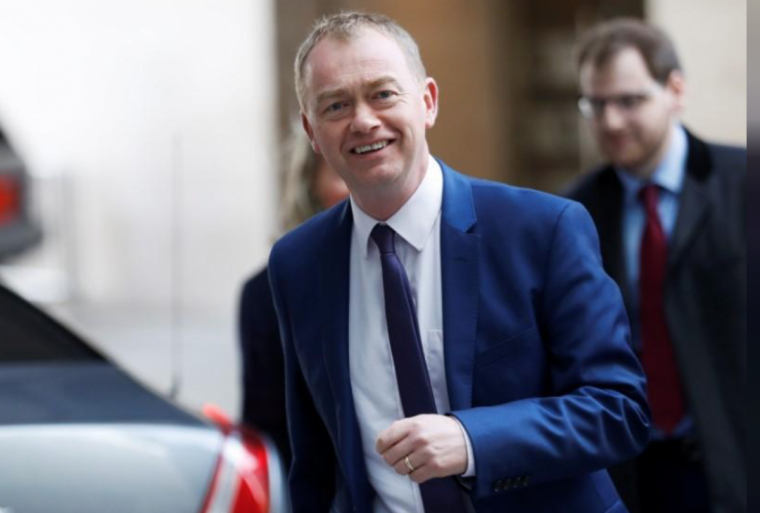It's time to re-humanise politics

This week, it emerged that the Labour Party has written to its defeated General Election candidates, suggesting that they might wish to contact the mental health charity Mind, or the Samaritans, or even to call 999, if they are still feeling stressed and distressed in the aftermath of their defeat.
Six weeks after the event, this might be viewed as amusingly inept – an attempt at mental health support via a letter addressed impersonally to "Dear 2019 General Election Candidate" – or as an insulting and tardy response to an event that left many candidates reeling in the wake of defeat.
Politicians do not attract much sympathy at the best of times. The lazy narrative goes that we are all a bunch of lying charlatans who take long holidays and don't care about our constituents. And I'm sure there are some MPs who fit that bill. But it is not the reality of the majority of my friends and colleagues in Westminster and local politics, who put long hours and incredible genuine emotional investment into helping people who often approach us at the end of their tether.
The truth is that politics and politicians have become dehumanised; Parliament is portrayed as a caricature; and social media allows the public to fire off angry tirades at the images they see on a screen. So, a generic and insensitive letter to a bunch of people who failed to achieve the magic letters "MP" after their names might simply be seen as ticking a political box in the detached Westminster world.
But I want to challenge us to step back and think about the human stories behind each "Con Gain" (other results are available) that flashed up on the TV screen on election night. We catch a glimpse of the faces of high-profile candidates, such as my own former party leader Jo Swinson; the struggle to take in the results whilst maintaining a publicly stoic attitude in the face of a hundred flashing cameras. But do we ever stop to think about what happens next?
Once the whirlwind of a General Election has passed by, and the bandwagon has moved on to the next political drama, those Parliamentary candidates who have been defeated are left isolated and often distraught.
Election night can be devastating for those who have thrown heart and soul into the campaign, particularly for former MPs who have lived and breathed the rhythms and concerns of their constituencies for years. Not to mention all their hugely committed staff who have also lost their jobs overnight.
After the 2015 Election that almost wiped out the Liberal Democrats in Parliament, a good friend and colleague of mine told me that, in losing his seat, he had lost his very identity. Of course, many people in all walks of life have experienced job loss. It is always painful, costly and can often feel personal. But losing as an MP is a bit different. It is a very public and very personal humiliation. You might say that we set ourselves up for it: we are the brand, the package; it is our faces that you see on posters and leaflets. Besides which, we know exactly what we are letting ourselves in for. Politics is a brutal business and you need a thick skin to take part.
But looking beyond the image and the brand, this makes the rejection even more personal when the electorate look at you and say 'no thanks'. And when you're a returning MP, they aren't just saying that about your brand but about the work you have done over your time in office.
Politics is a vocation, and I am most rewarded in my work when I have made a difference to someone's life: if I have helped a young couple to find somewhere to live, or worked to get a passport to reunite a family separated by nationality. My election win last month was by no means guaranteed. Losing would have been utterly devastating to me personally and to my awesome team. It would have also been a colossal blow to the community to no longer be served by committed and tenacious caseworkers.
This isn't an attempt to elicit sympathy, but it is a challenge to us to rehumanise politics.
As we seek as Christians to engage well with our politicians, we don't have to agree with them in order to care for and pray for them – and to remember those who have lost out as well as the victorious.
As followers of Christ, we know that our identity is not locked up in what we do but in Whose we are. He knows every hair on our heads and every cell in our bodies. He does not define us by our occupation. And although this may not be hugely reassuring for someone who is not a Christian, it is a reminder to us that the world so often gets its purpose and identity from transient things.
So, when the next lot of elections roll round, let's seek to remember that behind the media circus and Parliamentary bluster, politicians are human beings, and - wherever we stand with our political views - that we need to offer them dignity in defeat and show compassion in victory.
Tim Farron is Liberal Democrat MP for Westmorland and Lonsdale and former leader of the Liberal Democrats.











